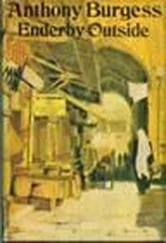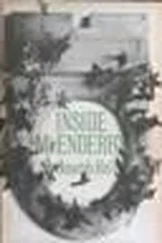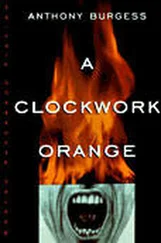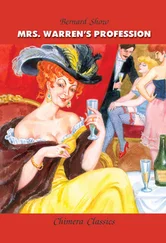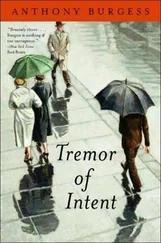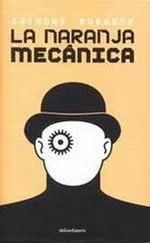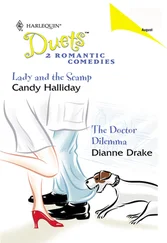"What plays have you writ to date?" Shakespeare looked surprised. "Who asks this?" Paley said: "What I say you will hardly believe. I come from another world that knows and reveres the name of Shakespeare. I come, for safety's sake, in disguise as a man from Norwich who seeks his fortune in the theatre and has brought plays of his own. I believe that there was, or is, an actor named William Shakespeare. That Shakespeare wrote the plays that carry his name – this is a thing I must prove."
"So," said Shakespeare, tending to melt into a blob of tallow badly sculpted into the likeness of Shakespeare, "you speak of what I will hardly believe. For my part, I will believe anything. You will be a sort of ghost from this other world you speak of. By rights, you should have dissolved at cockcrow."
"My time may be as short as a ghost's. What plays do you claim to have written up to this moment?" Paley spoke the English of his own day. Though the figure before him shifted and softened, tugged towards other shapes, the eyes changed little, shrewd and intelligent eyes, modern. Paley noticed now a small fireplace, in which a meagre newlit fire struggled to live. The hands of Shakespeare moved to their warming through the easy process of elongation of the arms. The voice said: "Claim? Heliogabalus. A Word to Fright a Whoremaster. The Sad Reign of Harold First and Last. The Devil in Dulwich. Oh, many and many more."
"Please." Paley was distressed. Was this truth or teasing, truth or teasing of this man or of his own mind, a mind desperate to control the sense data and make them make sense? On the table there, the mass of papers. "Show me," he said. "Show me somewhat," he pleaded.
"Show me your credentials," Shakespeare said, "if we are to talk of showing. Nay," and he advanced merrily towards Paley, "I will see for myself." The eyes were very bright now and shot with oddly sinister flecks. "A pretty boy," Shakespeare said. "Not so pretty as some, as one, I would say, but apt for a brief tumble of a summer's morning before the day warms."
"Nay," Paley protested, "nay," backing and feeling the archaism to be strangely frivolous, "touch me not." The advancing figure became horribly ugly, the neck swelled, eyes glinted on the hairy backs of the approaching hands. The face grew an elephantine proboscis, wreathing, feeling; two or three suckers sprouted from its end and blindly waved towards Paley. Paley dropped his scrip the better to struggle. The words of this monster were thick, they turned into grunts and fallings. Pushed into the corner near the table, Paley saw a sheet of paper much blotted ("Never blotted a line," did they say?):
I haue bin struggling striuing seeking how I may compair
This jailhouse prison? where I liue unto the earth world
And that and for because
The scholar was still alive in Paley, the questing spirit clear while the body fought off those huge hands, each ten-fingered. The scholar cried:
"Richard II? You are writing Richard II?"
It seemed to him, literary history's Claude Bernard, that he should risk all to get that message through to Swenson, that Richard II was, in 1595, being written by William Shakespeare. He suddenly dipped to the floor, grabbed his scrip and began to tap through the lining at the key of the transmitter. Shakespeare seemed taken by surprise by this sudden cessation of resistance; he put out forks of hands that grasped nothing. Paley, blind with sweat, panting hard, tapped: "UNDOUBTED PROOF THAT." Then the door opened.
"I did hear noise." It was the misshapen ugly man with eyes across his bare chest, uglier now, his shape changing constantly though abruptly, as though set upon by silent and invisible hammers. "He did come to attack tha?"
"Not for money, Tomkin. He hath gold enow of's own. See." The scrip, set down so hurriedly, had spilt out gold onto the floor. Paley had not noticed; he should have transferred that gold to his -
"Aye, gold." The creature called Tomkin gazed on it greedily. "The others that came so brought not gold."
"Take the gold and him," Shakespeare said carelessly. "Do what thou wilt with both." Tomkin oozed towards Paley. Paley screamed, attacking feebly with the hand that now held the scrip. Tomkin's claw snatched it without trouble.
"There's more within," he drooled.
"Did I not say thou wouldst do well in my service?" said Shakespeare.
"And here is papers." He looked towards the fire with a sheaf of them. Then he went to the grate and offered them. The fire read them hurriedly and converted them into itself. There was a transitory blaze which played music for shawms.
"Not all the papers." Shakespeare took the rest. "Carry him to the Queen's Marshal. The stranger within our gates. He talks foolishly, like the Aleman that came before. Wildly, I would say. Of other worlds, like a madman. The Marshal will know what to do."
"But," screamed Paley, grabbed by strong shovels of hands, "I am a gentleman. I am from Norwich. I am a playwright, like yourself. See, you hold what I have written."
"First a ghost, now from Norwich," Shakespeare smiled. He hovered in the air like his portrait again, a portrait holding papers. "Go to. Are there not other worlds, like unto our own, that sorcery can make men leave to visit this? I have heard such stories before. There was one came from High Germany -"
"It's true, true, I tell you." Paley clung to that, clinging also to the chamber door with his nails, the while Tomkin pulled at him.
"You are the most intelligent man of these times! You can conceive of it!"
"And of poets yet unborn also? Drythen, or some such name, and Lord Tennisballs, and Infra Penny Infra Pound? You will be taken care of like that other."
"But it's true, true!"
"Come your ways," growled Tomkin. "You are a Bedlam natural." And he dragged Paley out, Paley collapsing, frothing, raving. Paley raved: "You're not real, any of you. It's you who are the ghosts! I'm real, it's all a mistake, let me go, let me explain."
" 'Tis strange he talks," growled Tomkin. And he dragged him out.
"Shut the door," said Shakespeare. Tomkin kicked it to. The screaming voice went, over thumping feet, down the passageway without. Soon it was quiet enough to sit and read.
These were, Shakespeare thought, good plays. A pity the rest was consumed in that fire that now, glutted, settled again to sleep. Too hot today for a fire anyway. Strange that the play he now read was about, so far as he could judge, a usurious Jew. This Norwich man had evidently read Marlowe and seen the dramatic possibilities of an evil Lopez kind of character. Shakespeare had toyed with the idea of a play like this himself. And here it was, ready done for him, though it required copying into his own hand that questions about its provenance be not asked. And there were a promising couple of histories here, both about King Henry IV. And here a comedy with its final pages missing in the fire, its title Much Ado About Nothing. Gifts, godsends! He smiled. He remembered that Aleman, Doctor Schleyer or some such name, who had come with a story like this madman (mad? Could madmen do work like this? "The lunatic, the lover and the poet": a good line in that play about fairies Schleyer had brought. Poor Schleyer had died of the plague). Those plays Schleyer had brought had been good plays, but not, perhaps, quite so good as these.
Shakespeare furtively, though he was alone, crossed himself. When poets had talked of the Muse had they perhaps meant visitants like this, now screaming feebly in the street, and the German Schleyer and that one who swore, under torture, that he was from Virginia in America, and that in America they had universities as good as Oxford or Leyden or Wittenberg, nay better? Well, whoever they were, they were heartily welcome so long as they brought plays. That Richard II of Schleyer's was, perhaps, in need of the amendments he was now engaged upon, but the earlier work untouched, from Henry VI on, had been popular. He read the top sheet of this new batch, stroking his auburn beard finely silvered, a fine grey eye reading. He sighed and, before crumpling a sheet of his own work on the table, he reread it. Not good, it limped, there was too much magic in it. Ingenio the Duke of Parma said:
Читать дальше

